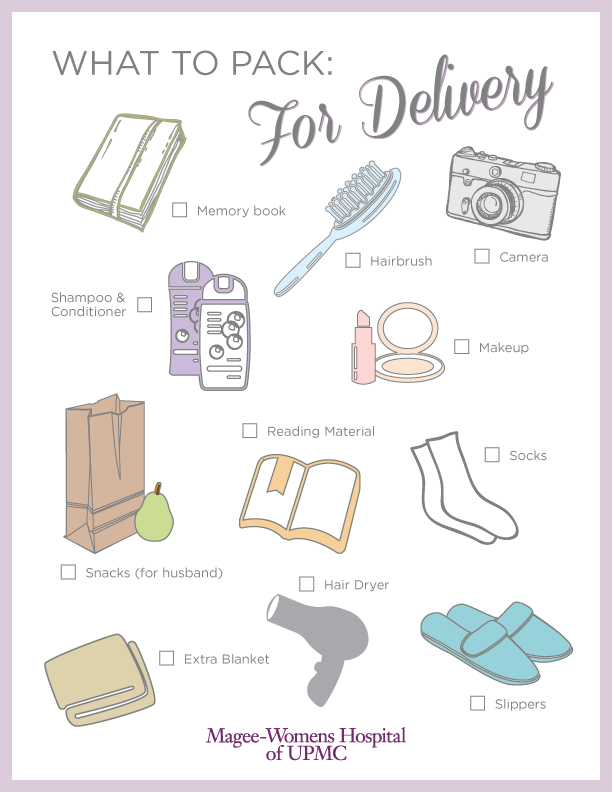Your body has changed a lot so far. This trimester brings even more changes to help you get ready for your baby’s arrival.
You may feel these symptoms during your third trimester1:
- Back and hip pain can happen due to the extra weight and ligaments stretching to prepare for birth.
- Braxton Hicks contractions are “practice contractions” that most women notice in the last few weeks of pregnancy.
- Difficulty sleeping often happens because your baby is more active at night and you can’t find a comfortable position.
- Frequent urination can be a sign that your growing uterus is putting pressure on your bladder, increasing your need to pee.
- Heartburn can happen when your uterus pushes on your stomach and pregnancy hormones let stomach acid escape up the esophagus.
- Hemorrhoids are the swelling of veins around the anus. It is caused by the pressure the uterus puts on the large vein that leads to the smaller ones.
- Lightening is when the baby drops further in your pelvis, which can make it easier for you to breathe and feel relief from heartburn. This change may increase pelvic and hip pain.
- Leaking breasts may be a sign that your body is preparing for breastfeeding.
- Nerve pain can feel like zapping or shooting in your groin or down your leg.
- Nesting can give you more energy in the days or weeks before labor as you prepare for your baby’s arrival.
- Shortness of breath can happen when your uterus puts pressure on your lungs.
- Swelling of your face, ankles, feet, and hands is normal to some degree. If you have sudden or extreme swelling, you should get care quickly because it could be a sign of pre-eclampsia (dangerously high blood pressure during pregnancy).
Your body will continue to change during the final stage of your pregnancy. This is a normal part of the process, but you should be on the lookout for serious symptoms. They could include:2
- A decrease in fetal movement.
- A severe headache that doesn't go away or comes with blurred vision, nausea, and swelling of the face and hands. This could be pre-eclampsia.
- Difficulty breathing and having chest pain after eating or getting an insect bite.
- A fast-beating heart or chest pain caused by your blood supply increasing. This can strain your heart and cause heart palpitations (serious complications can cause chest pain).
- A fever above 100.4. This could be a sign of an infection that could be dangerous to you and your baby.
- Pain when urinating. This could mean that you have a urinary tract infection.
- Severe stomach pain. This could be contractions and preterm labor.
- Sudden or extreme swelling. This could be a sign of pre-eclampsia.
- Swelling, redness, and warmth in one leg that occur together could be signs of a blood clot.
- Thoughts of harming yourself (can happen if you have depression in pregnancy).
- Vaginal bleeding, which could signal an issue with the placenta.
- Colored or malodorous vaginal discharge, which could be a sign of an infection.
If you notice any of these symptoms, contact your health care provider right away.
The first two trimesters require a lot more visits than the third. During your final trimester, you can expect to have routine tests3:
- Gestational diabetes screening (if you did not already have one)
- Three-hour glucose challenge test if you fail the gestational diabetes screening
- Group B strep test to check for group B bacteria and antibiotics if you test positive
- Blood, urine, or other tests if your health care provider is concerned about your symptoms
- An ultrasound if your health care provider is concerned about fetal growth, the amniotic fluid level, or the placenta
- Nonstress tests that monitor uterus contractions, fetal movement, and heart rate to check on your baby
- Stage one includes three phases: early, active, and transition. This is when you:
- May have contractions every 5 to 20 minutes that last 30 to 60 seconds.
- Begin effacing and dilating. The cervix opens (dilates) and thins out (effaces) to allow the baby to move into the birth canal.
- Have bloody discharge from your vagina.
- May feel pressure in your lower back.
- Need to go to the hospital or birthing center.
- Will be ready to give birth.
- Your baby is almost here! This is when you:
- Start feeling an urge to push.
- Can receive an episiotomy (a small cut made to help the baby come out and prevent tearing) if your health care provider suggests this.
- Start to have your baby crown.
- Finish giving birth and the umbilical cord is cut.
- Delivery of the placenta—the final stage of birth.
An important part of the birth plan is being prepared for different birthing outcomes. A Cesarean section (C-section) is the delivery of a baby through a cut (incision) in the mother's abdomen and uterus.
If you are pregnant, chances are good that you will be able to deliver your baby through the birth canal (vaginal birth). But in some cases, a C-section is needed for the safety of the mother or baby. So even if you plan on a vaginal birth, it's a good idea to learn about C-sections in case the unexpected happens. Here are a few reasons you might need a C-section:
- Labor is too slow and stops completely.
- The baby shows signs of distress, such as a very fast or slow heart rate.
- The baby is too big to be delivered vaginally.
- The baby is not in a head-down position (breach presentation) close to your due date.
- You are carrying more than one baby (multiple pregnancies).
So many things to keep track of during those last few weeks of pregnancy! Not sure what to bring to the hospital? Use this checklist as a starting point. Your personal list may include more (or fewer) items.

Still have questions or want to go over more details? Our UPMC Health Plan maternity care managers are here for you. They can talk through your questions or send information that may help you feel more confident in your decisions. Call 1-866-778-6073 now.
If you have had a C-section before, you may be able to deliver your next baby vaginally. This is called vaginal birth after cesarean, or VBAC. Women can talk to their health care providers to find out if they are a good candidate to try for a VBAC. Some of the reasons women consider VBAC over a repeat C-section are:
- Avoiding another scar on your uterus. This is important if you are planning on a future pregnancy. The more scars you have on your uterus, the greater the chance of problems with a later pregnancy.
- Fewer days in the hospital and a shorter recovery at home.
- A more active role for you and your birthing partner in the birth of your child.

